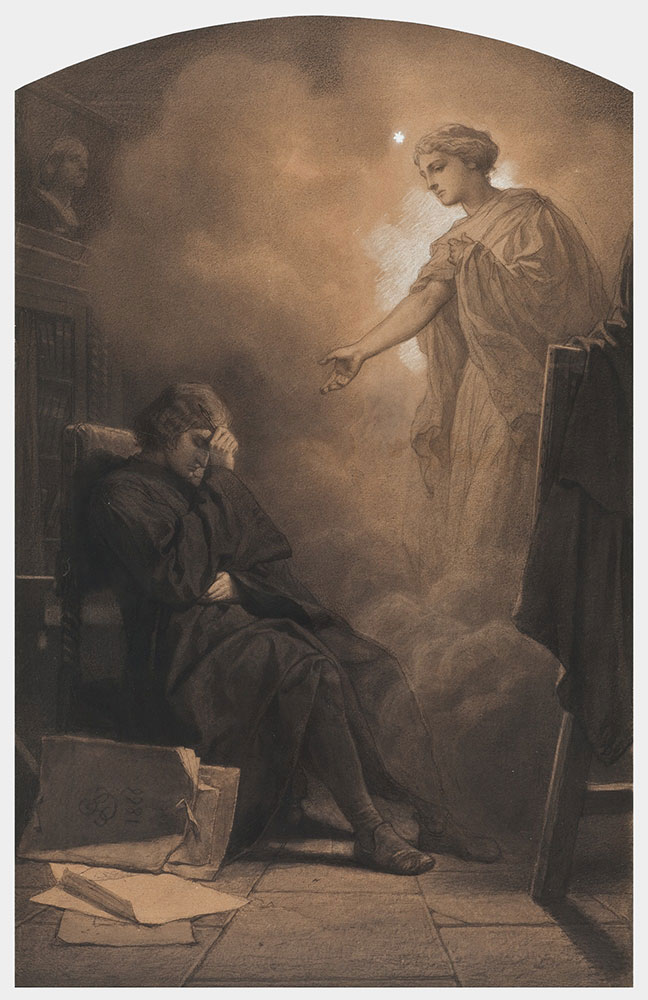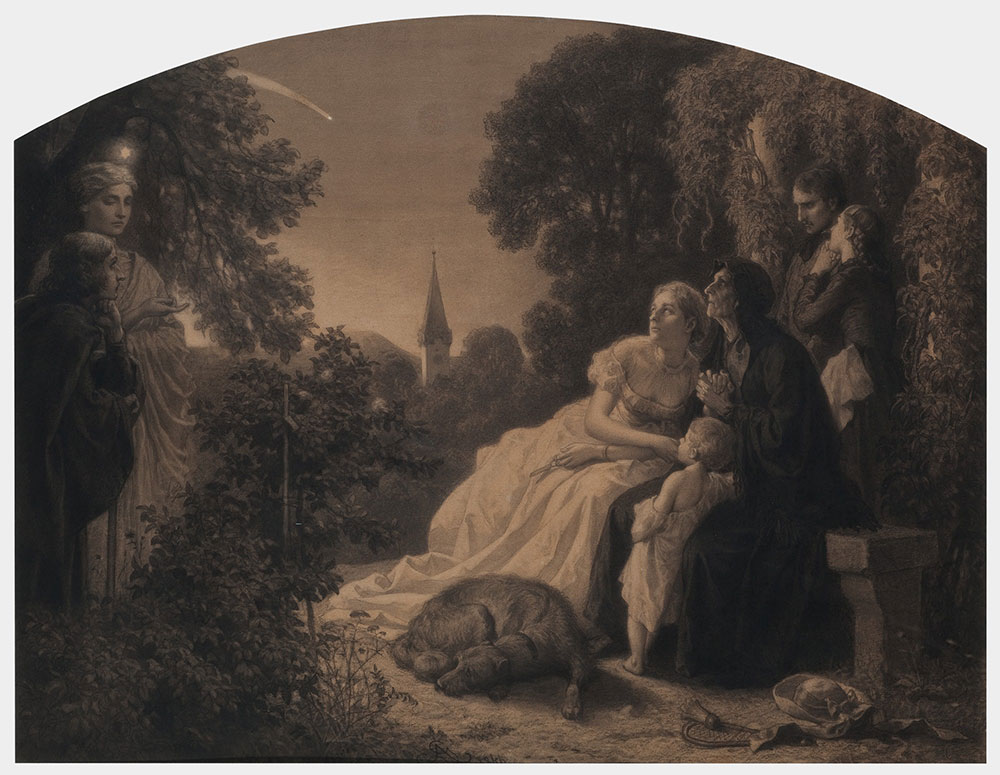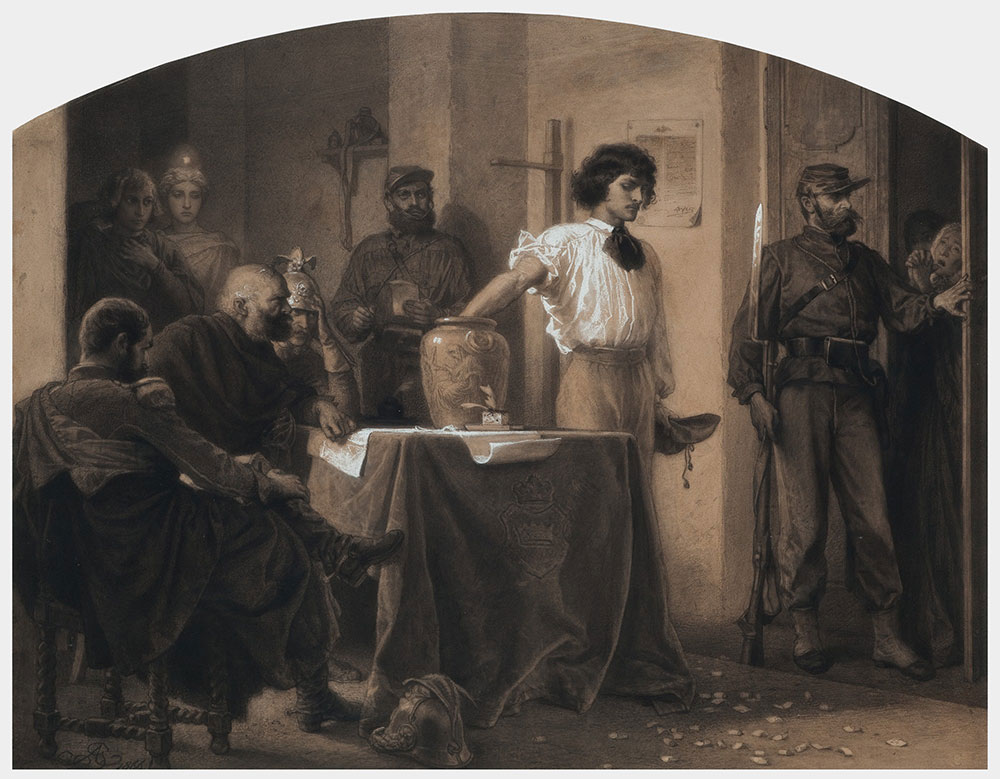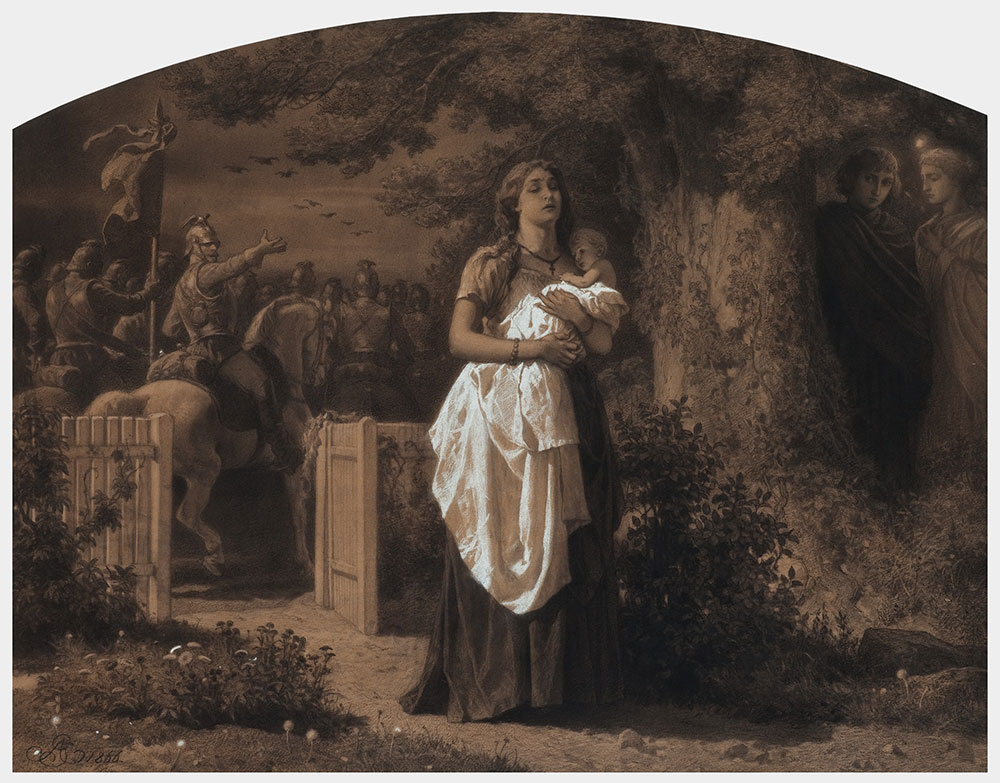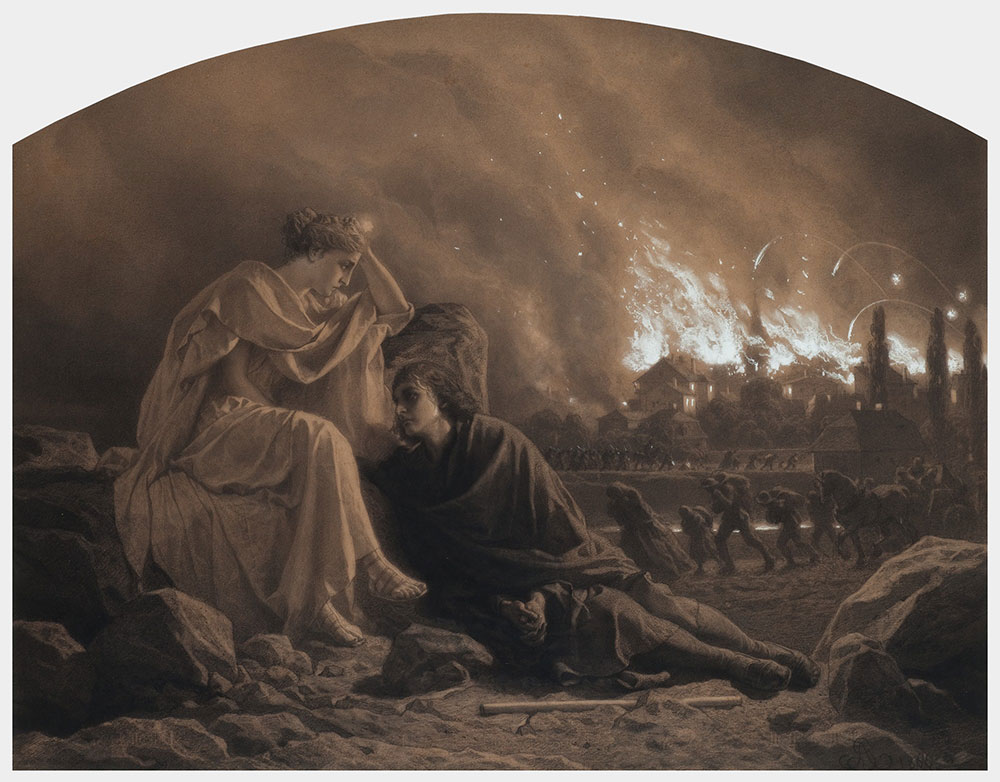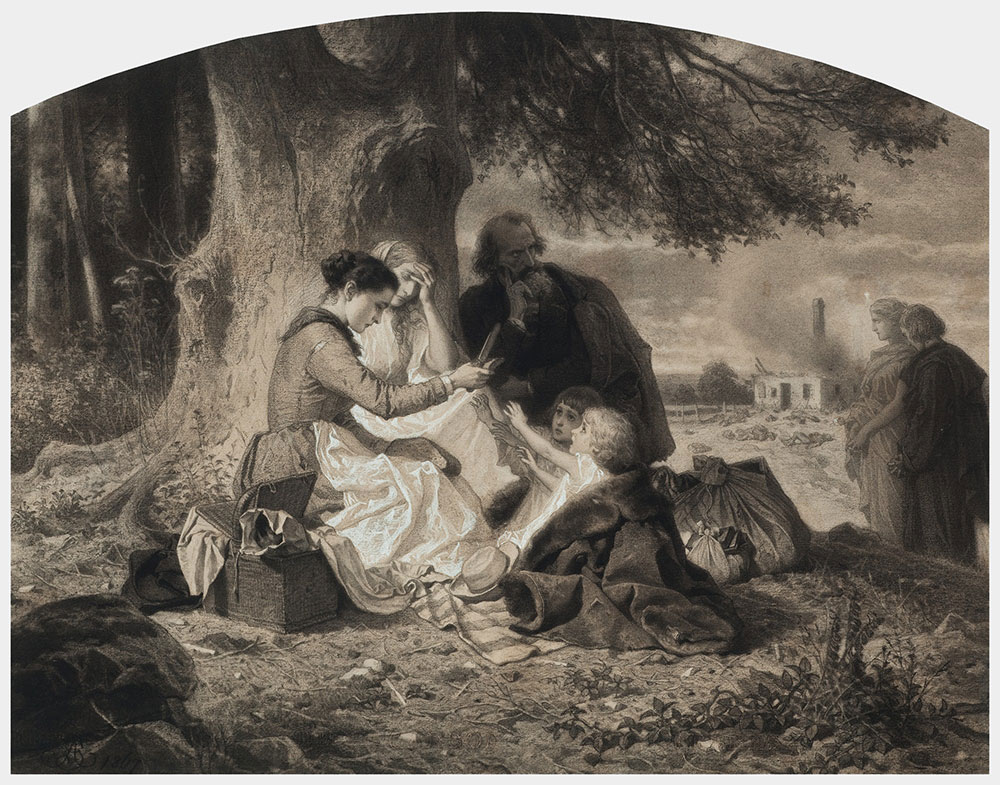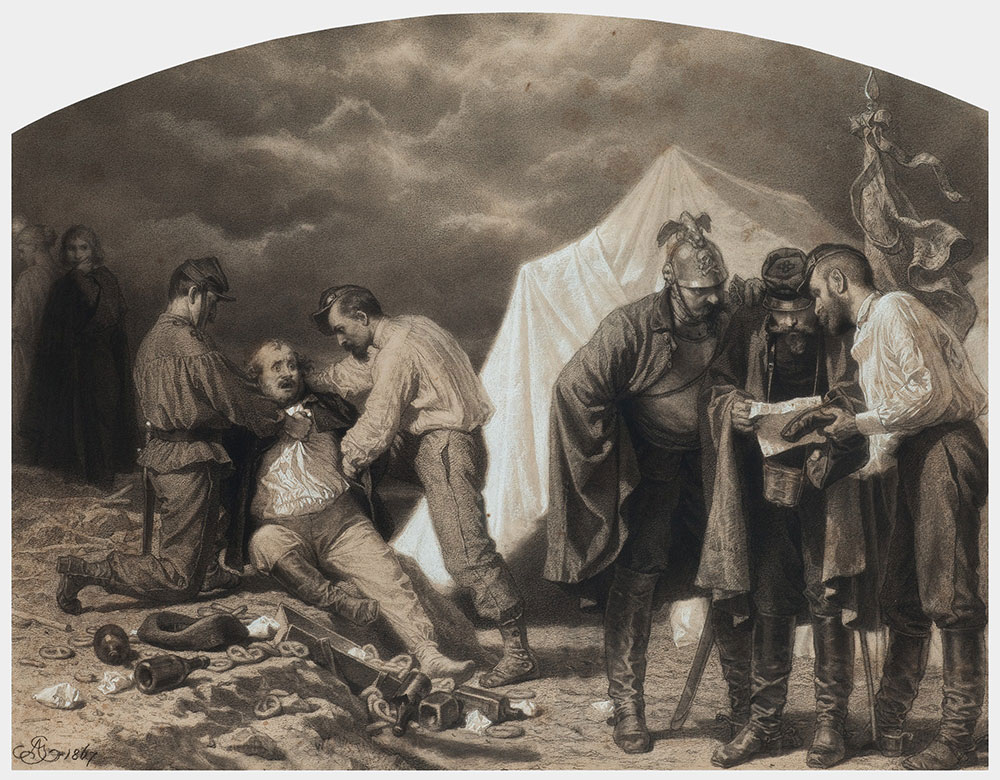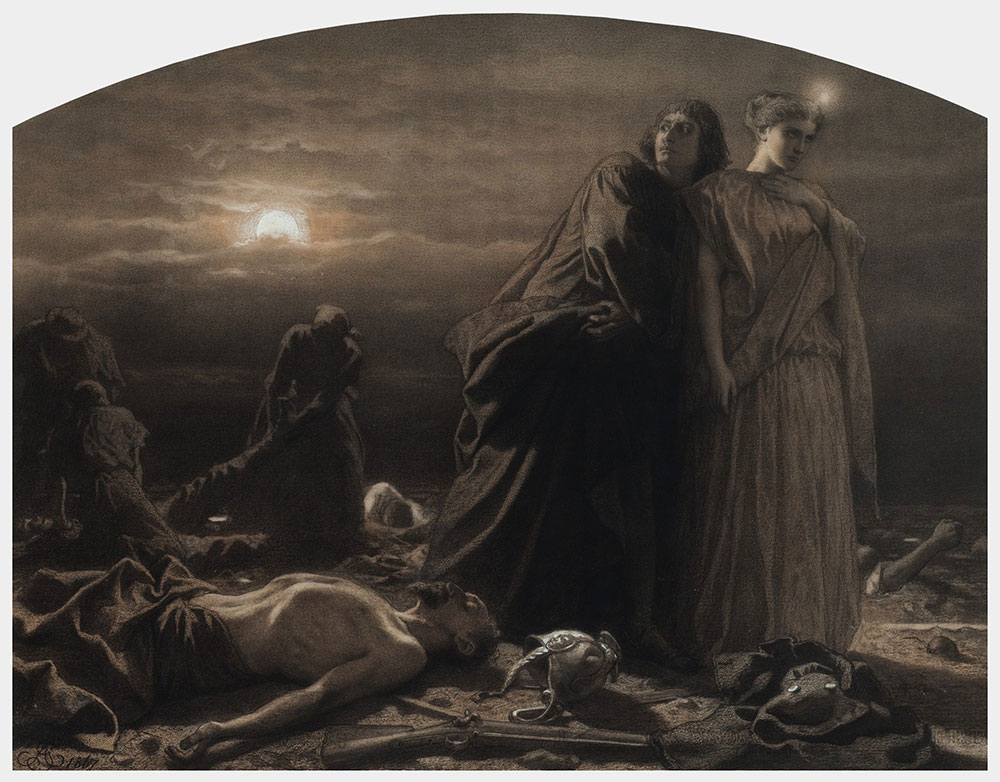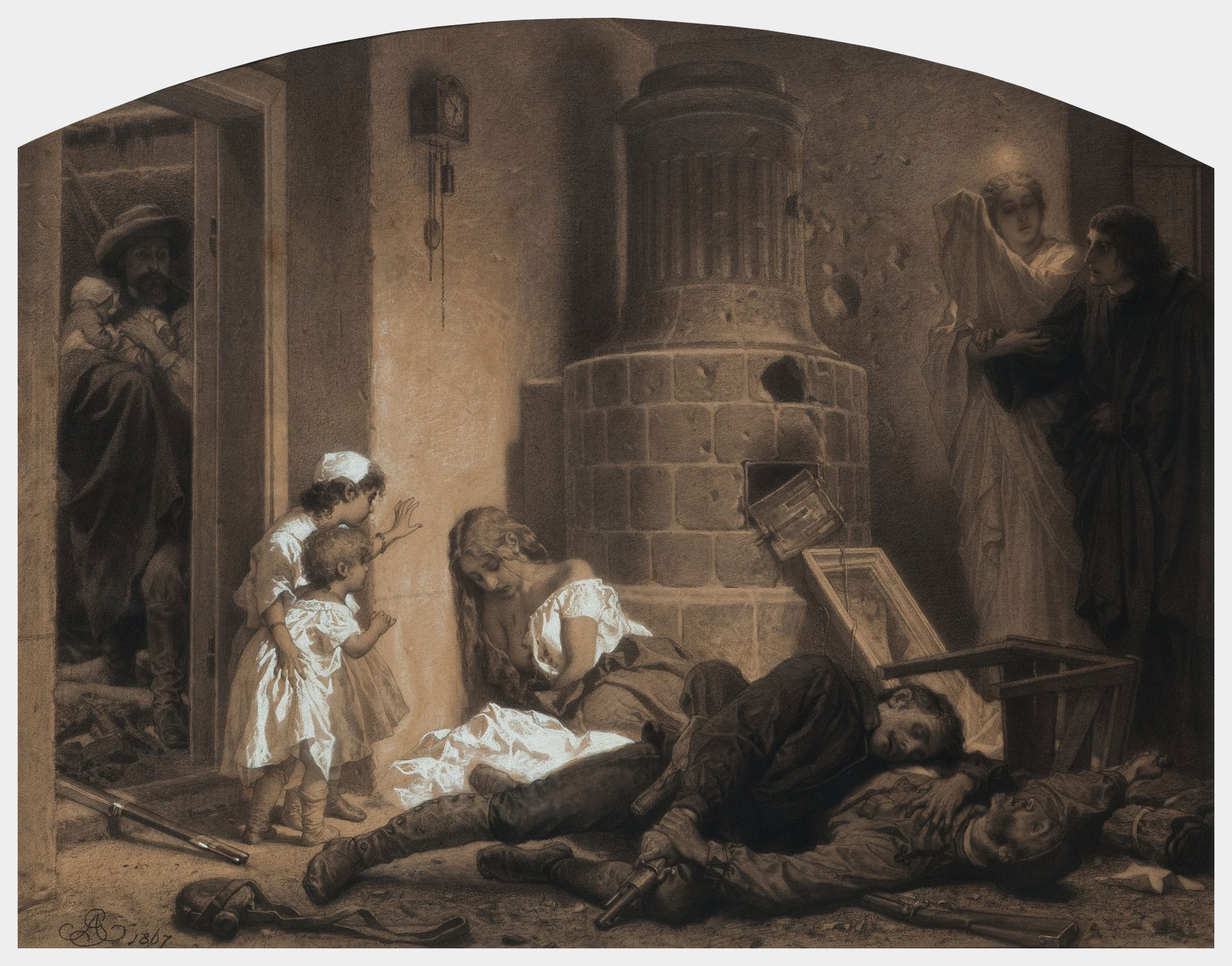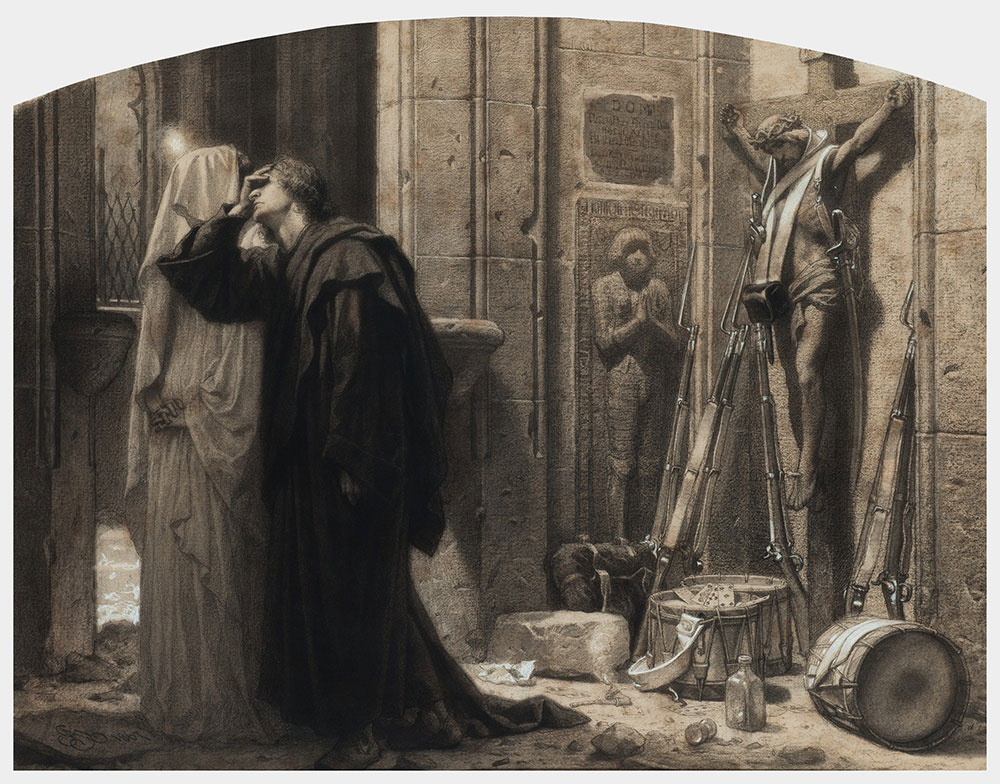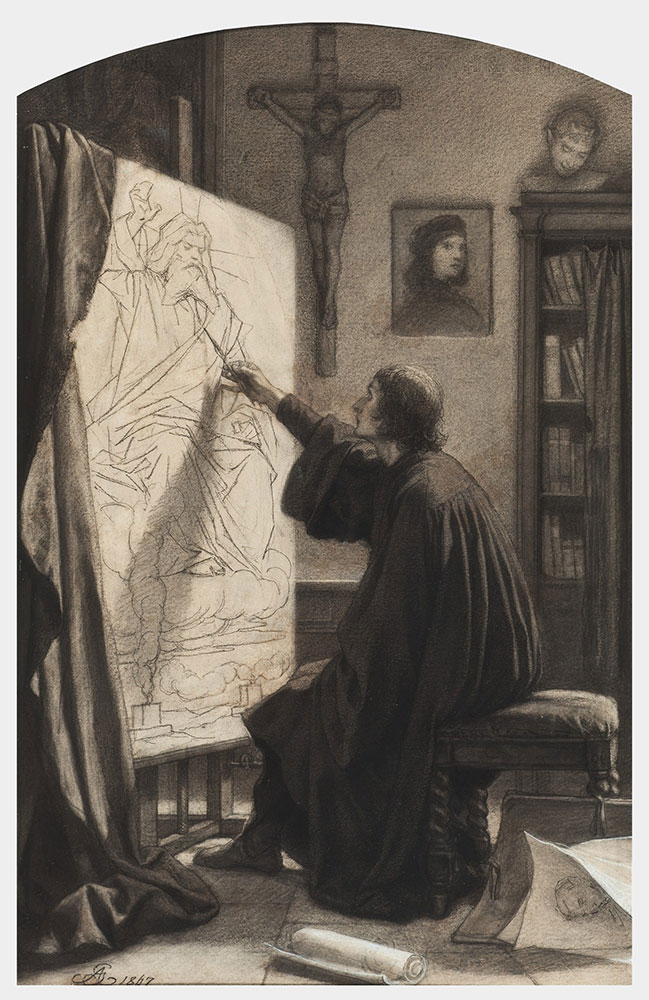16 January – 16 June 2024
Curator of the exhibition: Natalia Sienkiewicz
The series of drawings by Artur Grottger entitled Wojna [War] is – together with Poczet królów polskich [The Gallery of Polish Kings] by Jan Matejko, and the Panorama of the Battle of Racławice – one of the nation’s treasures in the custody of the National Museum in Wrocław. These eleven drawings made in 1866–1867 are considered a timeless work of art presenting a universal vision of the cruelty and damage caused by war. The presentation of these works in the National Museum in Wrocław commemorates the Year of Romuald Traugutt, the leader of the January Uprising of 1863, and its events.
Dante’s vision of the journey in the other world found its reflection in the last of the series of drawings created by Grottger. Through the eleven black-and-white pencil drawings on paper, the artist wanted to depict a universal vision of the cruelty of war and its consequences. The process of the creation of the series, described in detail by the artist in the letters to his fiancé – Wanda Monné – was long and painstaking. The intense work by Grottger from June 1866 until the middle of July 1867, was aimed at presenting the result at the Universal Exhibition in Paris in the same year.
The structure of the series spans from the Prologue to the Epilogue, serving as the framework for the other nine drawings, and shows that the whole tale is set in the artist’s mind. The first scene, entitled Come With Me Through the Valley of Tears, takes place in the studio of the artist, submerged in deep thought and melancholy, who is visited by the vision of his muse – Beatrice – calling him to rise and set out on his way. This pair of allegorical figures accompanies the observer on the journey, filled with tension and grief, leading through the subsequent scenes of the realities of war.
The narrative function of the two wanderers is to show them as a personification of virtue in contrast to the cruelty of the scenes taking place around them. The didactic aspect of the drawings, corresponding to the intentional references to Dante’s Divine Comedy, creates the universal and timeless character of this exceptional work of art.
The exhibition opens on the anniversary of Romuald Traugutt’s birthday (16 January 1826).
